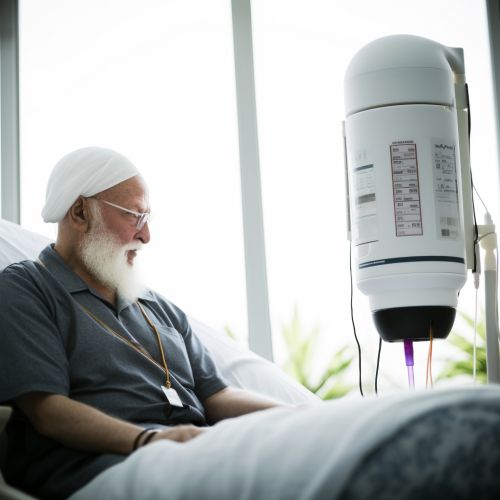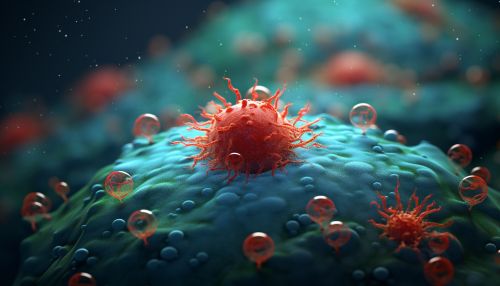Cancer therapy
Introduction
Cancer therapy, also known as oncological treatment, involves a set of strategies aimed at managing malignant tumors in the human body. These strategies are primarily designed to inhibit the growth of cancer cells, prevent their spread, and ultimately eliminate them. The choice of therapy is largely dependent on the type and stage of cancer, the patient's overall health status, and the potential benefits and risks of the treatment.
Types of Cancer Therapy
Cancer therapy is broadly classified into several types, each with its unique approach and mechanism of action.
Surgery
Surgical removal of the tumor is often the first-line treatment for many types of cancer. The goal is to remove the entire tumor or as much of it as possible. In some cases, nearby lymph nodes may also be removed to prevent the spread of cancer.


Radiation Therapy
Radiation therapy uses high-energy particles or waves, such as X-rays, gamma rays, electron beams, or protons, to destroy or damage cancer cells. It can be delivered externally or internally, depending on the type and location of the cancer.


Chemotherapy
Chemotherapy involves the use of drugs to kill cancer cells. These drugs can be administered orally, intravenously, or through a muscle. Chemotherapy is a systemic treatment, meaning it affects the entire body.


Immunotherapy
Immunotherapy is a type of cancer treatment that helps your immune system fight cancer. It can boost the body's natural defenses to fight cancer or use substances made in a laboratory to improve or restore immune function.


Targeted Therapy
Targeted therapy is a newer type of cancer treatment that uses drugs or other substances to more precisely identify and attack cancer cells, usually while doing little damage to normal cells.


Hormone Therapy
Hormone therapy is a treatment that slows or stops the growth of breast and prostate cancers that use hormones to grow.


Stem Cell Transplant
Stem cell transplant, also known as bone marrow transplant, can be used to treat certain types of cancer, such as leukemia and lymphoma. Stem cells are infused into the patient's bloodstream, where they travel to the bone marrow and begin to produce new blood cells.


Choosing a Cancer Therapy
The choice of cancer therapy is a complex decision that involves multiple factors. These include the type and stage of cancer, the patient's overall health status, and the potential benefits and risks of the treatment. The decision is usually made by a team of healthcare professionals, including medical oncologists, radiation oncologists, surgical oncologists, and other specialists.
Side Effects of Cancer Therapy
While cancer therapies aim to destroy cancer cells, they can also affect healthy cells, leading to various side effects. These can range from mild to severe and may include fatigue, nausea, vomiting, hair loss, and more. The severity and type of side effects depend on the type and extent of treatment, as well as the patient's overall health.
Future Directions in Cancer Therapy
Research is ongoing to develop more effective and less toxic cancer therapies. This includes the development of new drugs, improvements in radiation therapy and surgical techniques, and the exploration of novel therapeutic approaches such as gene therapy and nanotechnology.


